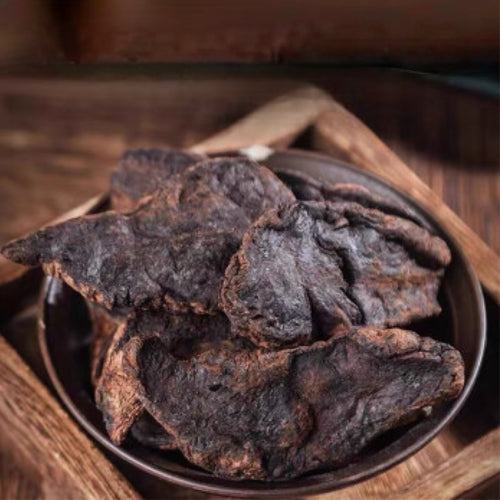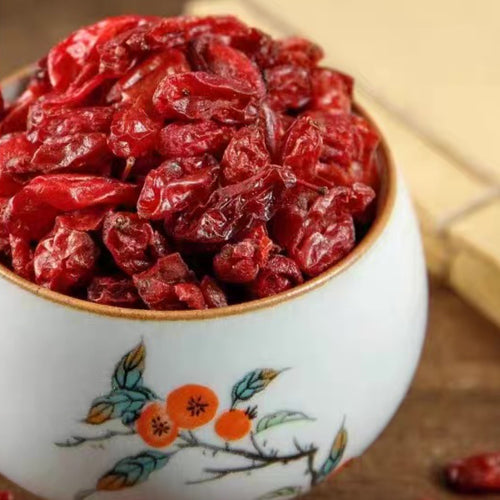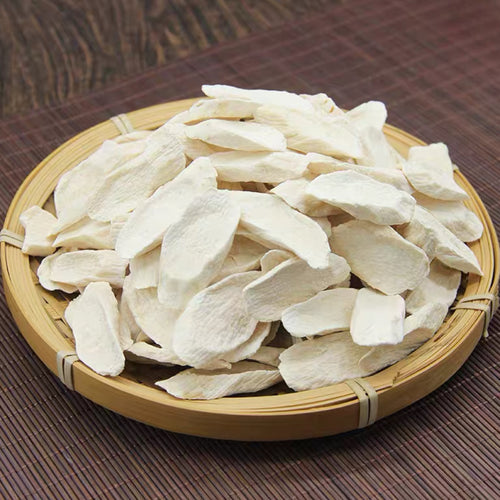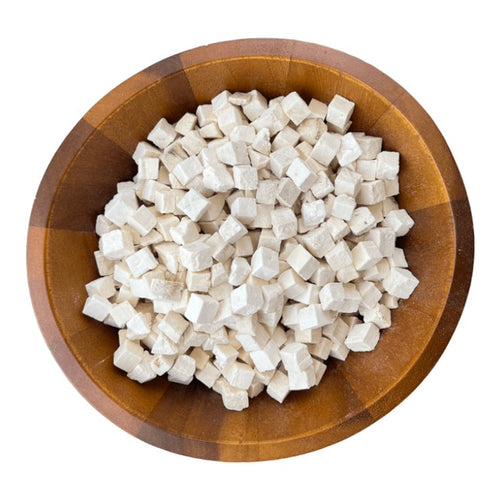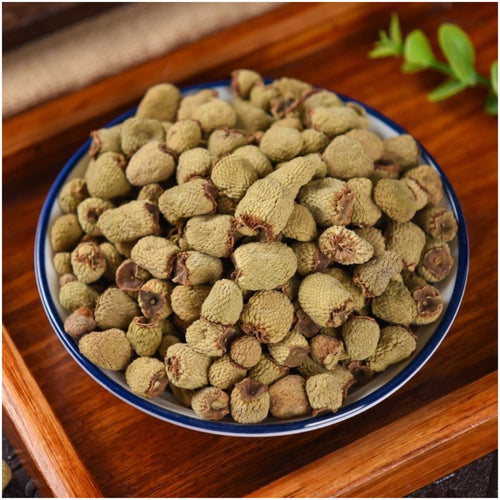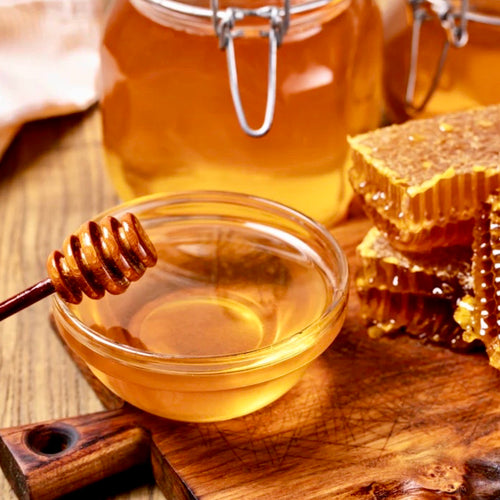An empirical herbal blend is ideal for tonifying Kidney Yin, the moistening and cooling fluids of the body, addressing issues such as autoimmune diseases, lower limb weakness, dizziness, and frequent night urination. It helps alleviate night sweats, hot flashes, and dry mouth or throat. It nourishes the Liver and Kidneys, providing support for high blood pressure, diabetes, neurasthenia, menopausal syndrome, and arrhythmias. It is also beneficial for chronic prostatitis, enuresis, lupus erythematosus, tuberculosis, and hyperthyroidism.*
Non-GMO | Gluten-Free | No sugar, corn, or dairy | No artificial colors, flavors, preservatives, chemical binders, or wax
100% Pure natural herbs, blended, made, and packaged in the USA
*These statements have not been evaluated by the Food and Drug Administration. This product is not intended to diagnose, treat, cure, or prevent any disease.
Silkieherbs® Herbal Pills wholesale require a minimum initial order of $250.00.
- Nourishes Kidney Yin and supports the Liver.*
- Reduces dryness (mouth, eyes, nose, skin).*
- Enhances deep sleep, restrains night sweats and hot flashes.*
- Helps regulate lupus, diabetes, blood pressure, arrhythmia.*
*These statements have not been evaluated by the Food and Drug Administration. This product is not intended to diagnose, treat, cure, or prevent any disease.
For adults, as a dietary supplement, take 5 - 10 pills once or twice daily if needed. If taking other medication or supplements, allow at least 2 hours before or after using this product.
Different individuals may experience different symptoms, including:
- Dryness, Sjogren’s syndrome, diabetes, autoimmune disorders, lupus
- Menopausal syndrome, hot flashes and night sweats
- Chronic prostatitis, enuresis, weak lower limbs, frequency in urination at night
- High blood pressure, dizziness, arrhythmia, tuberculosis, hyperthyroidism
DO NOT drink cold or iced beverages. Avoid chips and salty foods. It is best to avoid eating uncooked and cold foods like salad, sushi, smoothies, and ice cream; greasy or deep fried foods like fries and cheese; and spicy, pungent or heavily seasoned foods like kimchi, curries, and barbeque. No shrimp and shellfish. Avoid chocolate. No smoking, alcohol, and coffee.
Avoid eating late. The best time to eat is 7am, 12pm and 5pm. Go to bed by 10:30 and sleep from 11 pm to 7 am.
|
Serving Size 10 pills Serving Per Container 30 Amount Per Serving 3000mg |
|
Herbal Blend: Fresh Rehmannia Root Asiatic Cornelian Cherry Fruit Common Yam Rhizome Poria Fruit of Palmleaf Raspberry |
| Other ingredients: Pure honey to aid digestion and absorption |
Keep out of reach of children. Use only as directed. If any signs of discomfort or irritation occur, discontinue use and consult your physician.
Please note that a TCM formula is prescribed based on a diagnosed pattern and multiple formulas are usually prescribed to treat the whole person. Please consult a professional TCM practitioner, they will be best able to guide you.
Combining herbal formulas can effectively address multiple health concerns or enhance Kidneys related conditions:
- Imbalance of Yin and Yang: Combine Kidney Yin 5 to 10 pills, Kidney Yang 1 to 5 pills to restore harmony between Yin and Yang energies in the body.
- Internal Dampness and Phlegm: Combine Kidney Yin 5 to 10 pills, Kidney Yang 1 to 5 pills, with Arthritis 1 to 5 pills, Allergy 1 to 5 pills, Flu Cold 1 + Flu Heat 5, Detox Liver 1 to 5 pills, Cough(C) 3 to 5, Cough(H) 3 to 5 or Water Retention 3 to 5 pills depending on the severity and the kind of dampness and phlegm, to clear these obstructions and support kidney function.
- Kidney Qi Deficiency: Combine Kidney Yin 3 to 5 pills, Kidney Yang 3 to 5 pills, with Water Retention EX 3 to 5 pills, or Top Gun 3 to 5 pills based on symptoms, to bolster Kidney Qi and maintain overall health.
- Blood Stagnation: Combine Kidney Yin 5 to 10 pills, Kidney Yang 1 to 5 pills, with Injury Support 3 to 5 pills, After Stroke 3 to 5 pills, Body Aches(D) 3 to 5 pills, Kidney Stone 3 to 5 pills, Upper Body 1 to 3 pills, Lower Body 1 to 3 pills to disperse blood stasis and promote healthy circulation.
Learn more about Herbal Formula Combinations
Ingredients
Ingredients
 honey is the only binding agent
honey is the only binding agent
 no artificial fillers or ingredients
no artificial fillers or ingredients
 herbs harvested at the height of potency
herbs harvested at the height of potency
100% Natural
Our herbal supplements are made with natural honey as the binder. Honey can support the lungs, intestine, spleen, and stomach; It works as a natural preservative with antibacterial and healing properties. Unlike other herbal supplement companies that use starch, magnesium, and other chemical substances as binders for their supplements, we only use 100% honey. We also avoid using vegetable capsules because they require chemical components to form the capsule shape.
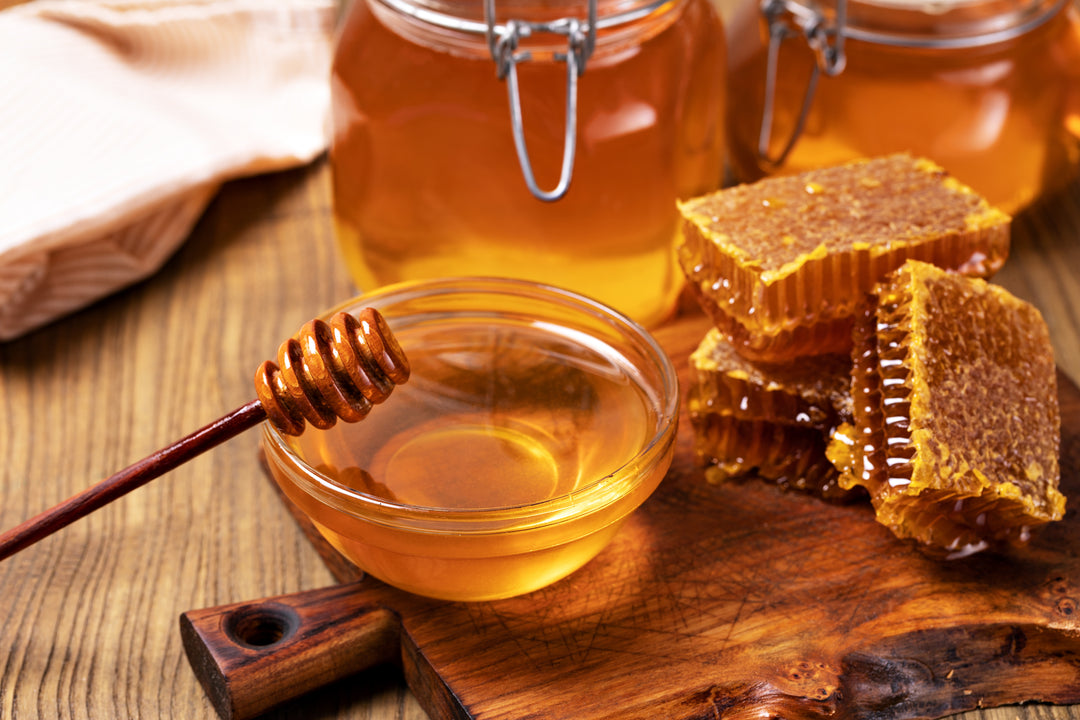
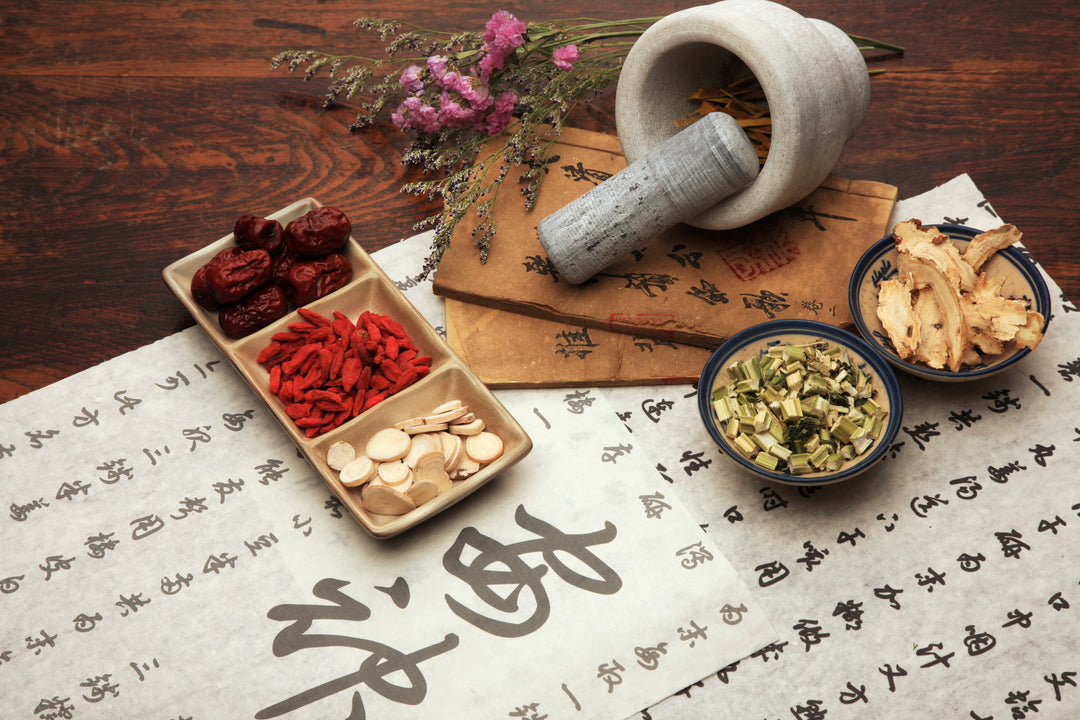
Peak Harvest Herbs
The herbs in our herbal pill blends are harvested at the height of their potency and they are substantially more expensive than less potent herbs that were harvested in the pre-or post-season, but in our view, there is no substitute for premium quality.
5 Generations
Over five generations we have collected, tested and refined Chinese herbal formulas that themselves draw from 3000 years of experience of Traditional Chinese Medicine. Traditional Chinese Medicine is a profound pathway to create the life you were born to live. It's a timeless bridge that can initiate and support change and growth in any and every life dimension: physical, mental, emotional, and spiritual.
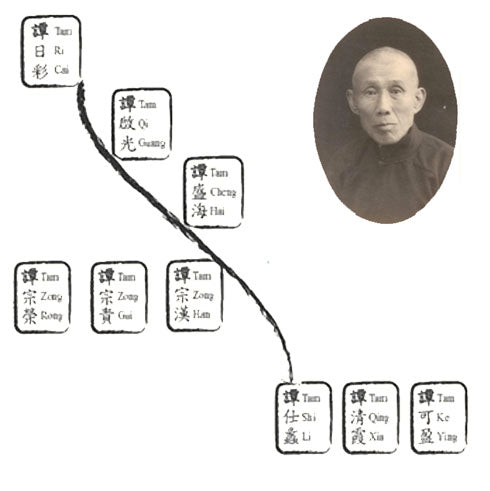
Message From Ann
“Good Health is crucial for our overall well-being. It encompasses physical, mental, and emotional aspects, and it's important to prioritize taking care of ourselves to lead a fulfilling life. Emphasizing prevention over cure is paramount for maintaining this balance. Without health, life can become incredibly challenging. It affects our ability to pursue our goals, enjoy our relationships, and experience daily life to the fullest. Good health forms the foundation for everything else we want to achieve and experience.” - Ann Tam
Click below for
Ann's Story
Here's my story.
If you feel skeptical or unsure of Chinese herbal remedies, I could hardly blame you. I wasn't a believer either until my daughter grew very sick and my father (the 4th generation herbalist) helped her get better with herbs.
I was born into a family of herbalists. My father, my grandfather, my great-grandfather, great-great grandfather were all herbalists. I represent the 5th generation in this long lineage dating back to Imperial China.
When I was three or four years old, I started to learn herbal songs and how to identify herbs. As I got older, I was taught how to process the herbs while working in my dad’s clinic in Vietnam. After we immigrated to the United States, my dad asked me if I wanted to pursue a career in TCM as an herbalist or acupuncturist. I said, “No, just leave me alone, Dad. I will find something I enjoy doing for work.” So, he left me alone to find my own way.
I wanted nothing to do with herbal medicine until I gave birth to my second daughter, Catherine, who was born with severe gastric reflux. When Catherine was 10 days old, I had to take her to the ER for IV injections into her little hand because she couldn’t keep milk down. Besides vomiting, she also was having diarrhea. Catherine was losing nutrition from both ends, so her tiny body was shrinking. At that time my dad warned me, “She needs to be treated with herbal medicine, otherwise she will have seizures later on.” I didn’t fully understand what my dad was talking about, so I ignored him.
My daughter got so ill that she could only take half an ounce of milk per hour. Before feeding her, I would use a syringe and shoot Zantac into her mouth to lessen the vomiting. As time passed, she needed milk more often, and consequently more Zantac. By the time Catherine was 8 months old, she needed to be fed and medicated 11 times a day.
I could hardly sleep, eat, shower or rest. Even at night, I had to drape my daughter over my shoulder for her to sleep. If I put Catherine down, she would vomit. I barely had time to squeeze in a 5-minute shower once or twice a week for myself. I was exhausted, but what could I do? I had to care for my daughter and do my best to survive each day with the hope that she would get better or at the very least her condition would not worsen.
Catherine had to wear a turtleneck with two sweaters along with a baby cap and scarf to be outside during the heat of summer, even when temperatures were 100 plus degrees. If I didn’t cover her up, she would have a runny nose, cough, and non stop vomiting. How will she be able to go to school or anywhere with air conditioning?
One day we went to a Vietnamese pho restaurant. After I set Catherine down into the high-chair, I turned around and adjusted my chair. Then I heard a woman’s shout, “Look at her!” I looked in the direction she pointed. It was Catherine…her eyes rolled up and her entire body stiff and shaking with fluid coming out of her mouth. Someone said, “Squeeze some lemon into her mouth.” I did it without hesitating and Catherine’s body relaxed.
We rushed her to the ER. For 3 days she was in the NICU where they monitored her brain. The doctors told me I was lucky because my daughter’s seizure didn’t last for more than 3 minutes which would have damaged her brain. After that I always carried a piece of lemon because I had no idea when my baby girl might have another seizure.
The seizures started to come weekly, so the doctor prescribed anti-seizure medication. Catherine wasn’t even 1 year of age, and already she was taking Zantac 11 times plus anti-seizure medicine 3 times a day. It was nearly impossible to administer the anti-seizure medicine because whenever I took out the syringe, she would cry and start vomiting.
I took Catherine to see a specialist at CHOC. I asked, “Doctor, have you ever seen any infant with this condition get well?” The doctor replied, “It depends. Some will grow out of it, but some don’t. If they don’t, then they will have to take medication for the rest of their life.”
“What do you mean by grow out of it?” The doctor explained that Catherine might get better by herself as she got older.
My mind was racing. “All this time the prescribed medication has not been treating her stomach?” The doctor said, “No, it only helps to guide the food down, so she won’t vomit it back up. That’s why you have to give it to her before the feeding.”
“Well, what if she doesn’t grow out of it?” In that case, Catherine will be dependent upon medication for the rest of her life. The doctor further informed me that she too was born with gastro reflux and is still taking medicine for the condition.
Her statement was like lightning in my brain. If the doctor can’t even treat herself for gastro reflux, how can she help my daughter? Seeing the futility of my path, I turned to my dad for help.
My dad advised me to stop all western drugs and to give her an herbal prescription 3 times a day. Administering medicine 3 times instead of 14 times a day to Catherine was a godsend to me. Even though it sounded too good to be true, I figured that I could still give Zantac to Catherine if she didn’t get better or continued to vomit.
After one month of herbs 3 times a day, Catherine vomited less and less. To test Catherine, I let her cry to see if she would vomit. She didn’t, so I knew she was getting better. After another month of herbal medicine, Catherine was able to wear less clothing without getting a runny nose, coughing, or vomiting. After 3 months of herbal formulas, she stopped having episodes of gastro reflux and seizure. Catherine will enjoy a normal, healthy life.
Because of Catherine’s dramatic recovery, I was sold on Chinese medicine and asked my dad to treat me. I fainted very easily, especially during the winter. After a few months of herbal formulas, I have never fainted again.
I started to have time to think and tried to understand why a piece of lemon helps to relax the muscles and stop a seizure. Lemon is a common citrus, yet it has magical powers that we don’t understand and underestimate. I wanted to learn more and find answers, so I decided to go to China which has a long history of herbal medicine. I went to TCM schools in China and Hong Kong and worked in the TCM hospitals to learn from the best herbal doctors in the world.
When I was there, I knew one day I would want to become an herbalist, but how can I get a steady supply of high-quality herbs. My dad and I backpacked across China and visited many farmlands. We interviewed farmers to grow herbs for us. Our products are used with the highest quality herbs that have been harvested at the height of their potency. They are substantially more expensive than less potent herbs that were harvested in the pre- or post-season.
After I came back to the United State, I worked with my dad and learned from his experiences and studied the formulas that our ancestors passed down. What I have been through helped me to understand the importance of health. Without health, don’t even talk about career, beauty, education, freedom, etc. I now have worked with many families who have suffered as I have. Their endearing appreciation drives me to work harder.
Our namesake "Silkie" is a Chinese breed of chicken that is well known for its calm and friendly temperament. They are gentle and caring and make wonderful mothers. A Silkie loves nothing more than brooding a cluster of eggs, whether they are hers or not, even if they are "duck eggs". We share the same outlook and care for our clients the same way we care for our own family.
Let's use the analogy of hot weather and cool weather to illustrate the concept of balancing the Kidney Yin and Kidney Yang in Traditional Chinese Medicine
In TCM, the balance between Kidney Yin and Kidney Yang can be likened to the harmony between hot weather and cool weather.
Kidney Yin: Picture Kidney Yin as the cool weather. It represents the nourishing, calming, and moistening aspects of the body's energy. Just as cool weather brings relief and refreshment, Kidney Yin nourishes and moisturizes the body's tissues, regulates fluids, and maintains a balanced internal environment. When Kidney Yin is in balance, it keeps the body's systems functioning smoothly, akin to enjoying the comfort of a cool breeze on a warm day.
Kidney Yang: Conversely, Kidney Yang can be compared to hot weather. It embodies the warming, invigorating, and activating qualities within the body. Similar to how hot weather brings warmth and energy, Kidney Yang fuels metabolism, promotes circulation, and provides the necessary vitality for bodily functions. When Kidney Yang is balanced, it fosters warmth, activity, and vigor throughout the body, much like the energy and vibrancy of a sunny day.
In TCM, maintaining the balance between Kidney Yin and Kidney Yang is essential for overall health and well-being. Just as a harmonious blend of hot and cool weather creates a comfortable environment, a harmonious interplay between Kidney Yin and Kidney Yang ensures optimal physiological functioning.
When there's an imbalance between these two energies, it can lead to various health issues. For example, if Kidney Yin is deficient, it's like experiencing excessive heat without relief, leading to dryness, irritability, and depletion of bodily fluids. Conversely, if Kidney Yang is deficient, it's akin to lacking the warmth and energy needed for proper functioning, resulting in coldness, sluggishness, and weakened metabolic processes.
TCM treatments aim to restore balance between Kidney Yin and Kidney Yang by addressing the root causes of imbalance. This may involve acupuncture, herbal medicine, dietary adjustments, or lifestyle modifications tailored to nourish and support both Yin and Yang energies. By fostering harmony between these vital forces, TCM promotes overall health, vitality, and resilience, much like finding the perfect balance between hot and cool weather for optimal well-being.
Introducing the Highest Quality Herbs Inside Kidney Support Yin
Combining Herbal Formulas Togethers
Combining Herbal Formulas Togethers
Combining herbal formulas can effectively address multiple health concerns or enhance overall well-being.
- Consider Patterns: Identify underlying imbalances or health concerns before combining formulas to ensure compatibility.
- Address Multiple Symptoms: Choose formulas targeting different health aspects to address multiple symptoms simultaneously.
- Timing Matters: Consider organ functions according to the Silkie 24 Hour Wellness Wheel. For instance, take Liver and Gallbladder formulas post-dinner or around 7 pm, while Lung and Large Intestinal formulas are best taken upon waking or at 7 am.
- Synergistic Actions: Look for herbs with complementary actions to enhance overall effectiveness, such as pairing anti-inflammatory with immune-boosting herbs.
- Ensure Compatibility: Check compatibility and safety of combined herbs, avoiding conflicting actions or interactions. Consult trusted herbalists for guidance.
- Customize Dosages: Adjust individual herb dosages based on personal needs and tolerance levels for optimal therapeutic effects.
- Monitor Effects: Pay attention to body responses and modify combinations as needed. Seek guidance from trusted herbalists for personalized consultation.
Herbal Formula Combinations for Kidneys Related Conditions
- Chinese Herbs for Chronic Kidney Disease Due to Imbalance of Yin and Yang: Combine Kidney Yin 5 to 10 pills, Kidney Yang 1 to 5 pills to restore harmony between Yin and Yang energies in the body.
- Chinese Herbs for Chronic Kidney Disease Due to Internal Dampness and Phlegm: Combine Kidney Yin 5 to 10 pills, Kidney Yang 1 to 5 pills, with Arthritis 1 to 5 pills, Allergy 1 to 5 pills, Flu Cold 1 + Flu Heat 5, Detox Liver 1 to 5 pills, Cough(C) 3 to 5, Cough(H) 3 to 5 or Water Retention 3 to 5 pills depending on the severity and the kind of dampness and phlegm, to clear these obstructions and support kidney function.
- Chinese Herbs for Chronic Kidney Disease Due to Kidney Qi Deficiency: Combine Kidney Yin 3 to 5 pills, Kidney Yang 3 to 5 pills, with Water Retention EX 3 to 5 pills, or Top Gun 3 to 5 pills based on symptoms, to bolster Kidney Qi and maintain overall health.
- Chinese Herbs for Chronic Kidney Disease Due to Blood Stagnation: Combine Kidney Yin 5 to 10 pills, Kidney Yang 1 to 5 pills, with Injury Support 3 to 5 pills, After Stroke 3 to 5 pills, Body Aches(D) 3 to 5 pills, Kidney Stone 3 to 5 pills, Upper Body 1 to 3 pills, Lower Body 1 to 3 pills to disperse blood stasis and promote healthy circulation.






